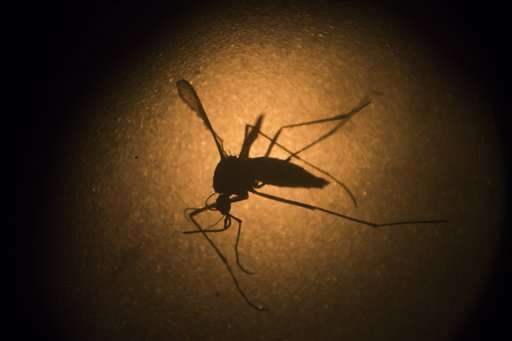Case of sexually transmitted Zika is confirmed in Texas

Health officials say a person in Texas has become infected with the Zika virus through sex, in the first case of the illness being transmitted within the United States amid the current outbreak in Latin America.
The unidentified person had not traveled but had sex with a person who had returned from Venezuela and fallen ill with Zika, Dallas County health officials said Tuesday. The U.S. Centers for Disease Control issued a statement saying lab tests confirmed the non-traveler was infected with Zika.
The virus, which has been linked to birth defects in the Americas, is primarily spread through mosquito bites, but investigators had been exploring the possibility it could be sexually transmitted. There was a report of a Colorado researcher who picked up the virus in Africa and apparently spread it to his wife back home in 2008, and it was found in one man's semen in Tahiti.
"It's very rare, but this is not new," Zachary Thompson, director of the Dallas County Health and Human Services, told WFAA-TV in Dallas.
The CDC said it will issue guidance in the coming days on prevention of sexual transmission of Zika virus, focusing on the male sexual partners of women who are or may be pregnant.
The CDC has already recommended pregnant women postpone trips to more than two dozen countries with Zika outbreaks, mostly in Latin America and the Caribbean, including Venezuela.
In the epidemic in Latin America and the Caribbean, the main villain identified so far is called Aedes aegypti—a species of mosquito that spreads other tropical diseases, including chikungunya and dengue fever. It is found in the southern United States, though no mosquito-borne transmission has been reported in the continental United States to date.
The World Health Organization on Monday declared a global emergency over the rapidly spreading Zika virus, saying it is an "extraordinary event" that poses a threat to the rest of the world. The declaration was made after an emergency meeting of independent experts called in response to a spike in babies born with brain defects and abnormally small heads in Brazil since the virus was first found there last year.
WHO officials say it could be six to nine months before science proves or disproves any connection between the virus and babies born with abnormally small heads.
The CDC said that in the recent Texas case, there's no risk to a developing fetus.
Zika was first identified in 1947 in Uganda. It wasn't believed to cause any serious effects until last year; about 80 percent of infected people never experience symptoms.
The most common symptoms are fever, rash, joint pain and red eyes. The illness is usually mild with symptoms lasting several days to a week. Symptoms usually start two days to a week after being bitten by an infected mosquito.
While Thompson told the television station that the case of sexual transmission is "a game-changer," he added that he didn't want people in Dallas County to overreact. Health officials and Thompson noted that sexual partners can protect themselves by using condoms to prevent spreading sexually transmitted infections.
© 2016 The Associated Press. All rights reserved.















